There’s a short story by Madeleine Thien called “A Map of the City.” The narrator in that story remembers a furniture shop her father owned when she was growing up. She loved going there so much she used to pretend to be sick in order to get out of school and be taken to the store instead. There she would lounge on a plastic lawn chair in a doorless storage closet with a little curtain pulled closed for privacy. During one of those times a customer stumbles upon her:
“Jesus Christ,” the man said, stepping backward, his hand dropping the curtain… The man stared at me, aghast.
I have trouble remembering how the rest of the story goes but I think about that scene a lot. Especially how it felt to read. I felt embarrassed. For her or him, I’m not sure which, but I could picture his face. And hers. It’s something about the awkwardness of being caught (or catching someone) playing in some private way, perhaps, that I can’t escape it. Or get enough.
Earthling by German artist and illustrator Aisha Franz is filled with wonderful little moments like this. In fact, a scene very similar to Thien’s occurs when one of the three protagonists, Mädchen’s mother, goes to the dry cleaners and spots a little Asian girl, sitting up on a high shelf, fiddling with a rubik’s cube.
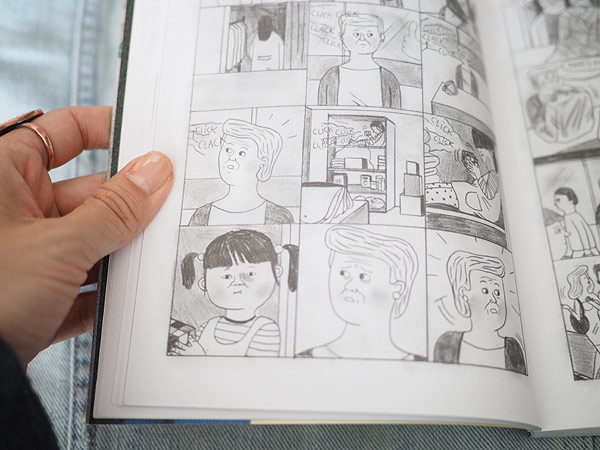
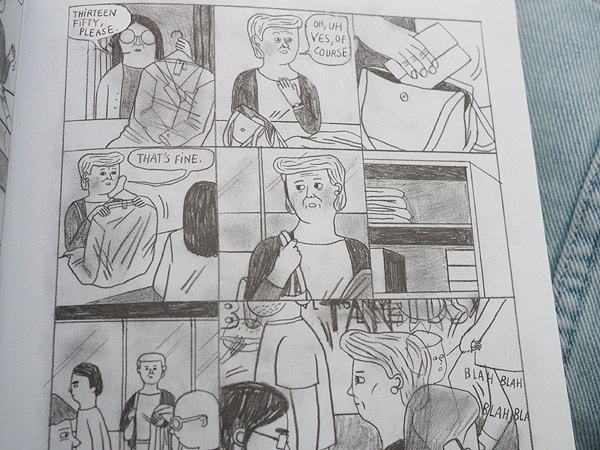
Mädchen’s mother and the child stare at one another until the clothes arrive. The encounter lasts no more than a few panels. The scene is brief, random, quiet and highly awkward. But also kind of perfect. And it’s not just that scene; it’s the book in general.
When it comes to Earthling things don’t quite fit together. Of course, that’s part of the general theme—the strange alienness of adolescence. But the story isn’t just about young Mädchen; it’s about her mother and older sister too. They’re all kind of a mess. And they look it too, especially given Franz’s smudgy aesthetic (which can take some getting used to).
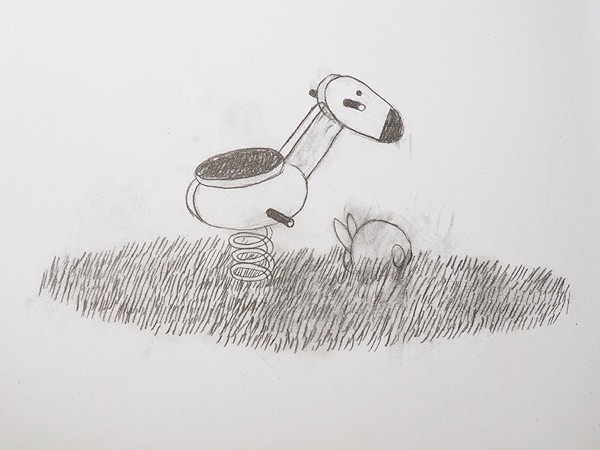
A smudge can suggest such different things. While it can appears as a rather humble sign of being mistaken i.e. rubbing something out (or having tried to); there’s also a certain audacity to it, like rubbing something in (or purposefully making things worse). Earthling plays with both these extremes. Scribbles extend well past the edges of the frame or appear without a frame at all. Franz has the confidence to draw outside the lines, sure, but there’s lack of intention to it too — the absence of some clear or expected message about the inherent messiness of life or what it means to grow up. Things don’t tie together nicely like that.
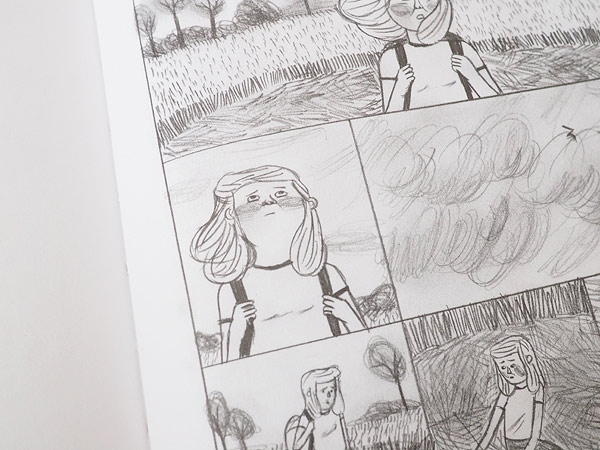
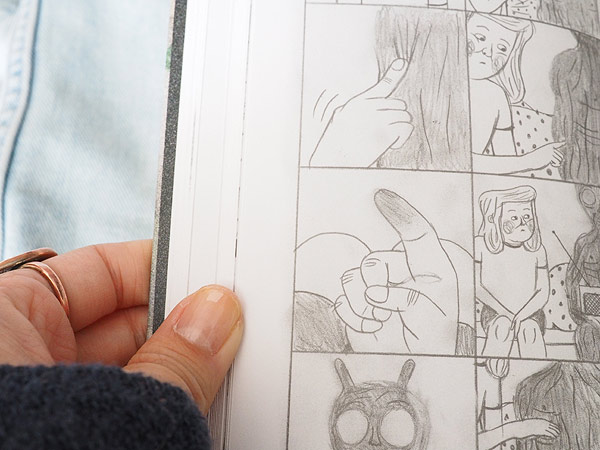
In this way, the story isn’t smooth or straight-forward. The penciling may feel child-like, but it’s not nostalgic. There’s no comfort or narrative familiarity to rely on. The most notable thing about Earthling is, rather, the effect it has. When I finished reading I half expected to look down and find lead on my fingertips. And maybe that’s it: Earthling gets your hands dirty. And, like the antics of its three characters, caught up as they are in their own embarrassingly intimate moments, it forces you to take a step back—aghast, perhaps—because those moments can’t help but rub off on you too.
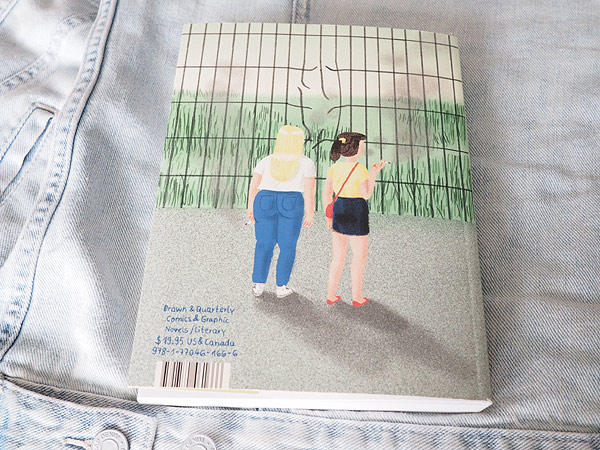
Join our Secret Email Club
Our weekly newsletter filled with interesting links, open call announcements, and a whole lot of stuff that we don’t post on Booooooom! You might like it!
Sign UpRelated Articles


